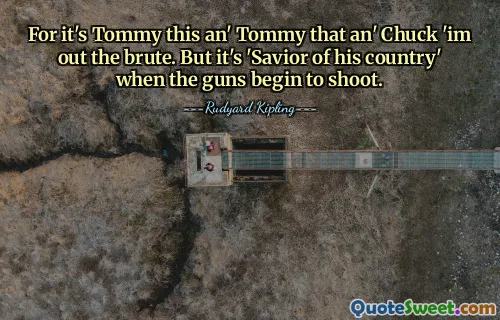We were soldiers, but even before we were showed how to kill our enemies, they taught us how to kill ourselves.
The quote from Ruth Ozeki's "A Tale for the Time Being" reflects on the harsh realities of military training, where the emphasis on killing extends to self-destruction. It highlights the psychological toll that comes with being trained as a soldier, suggesting that the process strips away one's humanity before even addressing the enemy. This notion brings to light the internal conflicts faced by soldiers, forcing them to grapple not only with the act of killing others but also with the potential for their own demise.
The juxtaposition of soldiering with self-harm in the quote suggests a profound critique of the military's approach to training. It implies that the soldiers are made to confront their mortality in a process that should prepare them for survival. This paradox serves as a commentary on the broader implications of war and the mental struggles soldiers endure, revealing how the expectations placed on them can lead to feelings of hopelessness and despair, a reminder of the hidden scars that warfare instills in those who serve.
